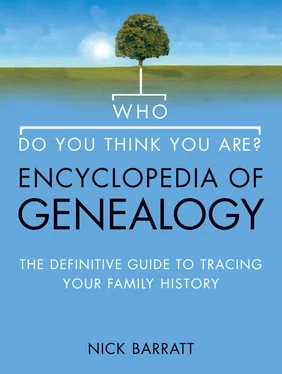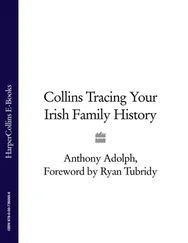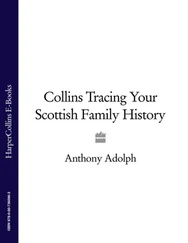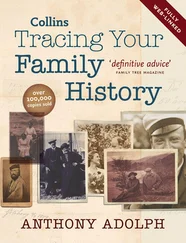‘ Parish records are among the longest continuous sets of records available .’
Historically, Christian Britain was divided into dioceses, each administered by a bishop and consisting of smaller territorial sub-divisions known as parishes. A parish is a geographical unit under the administration of a local priest or pastor, and they have existed in England, Wales, Scotland and Ireland since the end of the sixth century. By the nineteenth century, England and Wales had approximately 11,000 parishes, varying considerably in size and population. Although there have almost always been religious minorities such as Jews in England, the vast majority of the population belonged to the Established Church of England from the sixteenth century onwards, when the country broke away from the authority of the Papacy in Rome. Those Christian minorities that did not thereafter subscribe to the Established Church, for example Quakers and Roman Catholics, came to be known as ‘non-conformists’. They remained small in number until the nineteenth century, in part due to the persecution they faced. Surviving records for these non-conformist groups will be discussed separately below.
… make the most of parish registers
1. Prior to the commencement of civil registration, parish registers that recorded baptisms, marriages and burials on a local level are our only way of confirming the births, marriages and deaths of our ancestors. These can be more difficult to trace, because there is not one centralized index and you usually need to know which parish your family was living in to be able to locate their entries. Parish registers also contain less detailed information than civil registration certificates, making it more challenging to compare details from record to record. Nevertheless, the fact these registers survive for some parishes as far back as the sixteenth century means there is a wealth of information about your ancestors waiting to be discovered, with a little patience and determination!
2. If you find civil registration documents for your ancestors that do not give the information you were expecting to find, it may be worth looking for the parish register of whichever religious ceremony would have marked the event to see if the two records corroborate one another .
Parish Records of the Church of England
In 1538, Henry VIII’s chancellor Thomas Cromwell introduced legislation that required every priest to record all baptisms, marriages and burials within his parish, and it is these surviving records that enable genealogists to trace their ancestors beyond the start of the great record series of the nineteenth century – civil registration certificates and census returns. Few records survive this far back – on average, most English parishes have records that start around 1611 though there are some examples in Wales from 1541 – because many of the early records were not kept with any degree of care, being written on loose sheets of paper which have not survived the passage of time. A further royal proclamation was issued in 1558 instructing that these parochial events be written on parchment rather than loose paper, which increased the chances of survival; therefore 1558 is generally recognized as the start date of parish registers.
Another Act of Parliament, passed in 1597, is also important as it led to the birth of what are known as ‘Bishops’ Transcripts’. As well as compiling their own parish registers, local clergy were instructed to make annual copies of each register and send them to the bishop of the diocese in which they served. Therefore these are very useful duplicate copies of the original parish registers and can be used as an alternative if the original does not survive (or is partly or wholly illegible). However, Bishops’ Transcripts sometimes contained less detail than parish registers, or recorded slightly different information, so it is worthwhile examining both sources where possible.
There are other factors to consider when viewing the earliest registers. Other than the possibility that they may no longer be legible (ink may have faded or pages rotted), early registers were usually written in Latin. However, this shouldn’t cause too many problems. The nature of the information is fairly formulaic and is usually contained in a single sentence. Moreover, most archives have Latin dictionaries that enable you to translate words such as calendar months into English, as well as Latin versions of English names.
Another point to bear in mind is that the modern Gregorian calendar was adopted in the mid-eighteenth century instead of the old Julian calendar. Until 1752 the New Year did not begin on 1 January but 25 March. Hence, for example, all events occurring after 31 December 1675 to 24 March of the following year would belong to the year 1675, even though today we would consider them as belonging to 1676. Genealogists refer to this in their dating by using the formula ‘February 1675/6’.
Further, prior to 1813 there was no uniform method of registering events. Instead, individual clerks recorded information in their own unique ways and consequently the amount of information contained in parish registers varies considerably. Some parishes kept separate registers for baptisms, marriages and burials, whereas others prepared annual registers recording all these events together. The Rose Act was passed in 1813 and from this date all baptisms, marriages and burials were written in pre-printed books issued by the ‘King’s Printer’. These books ensured that the same details were recorded by each parish throughout the country. Often there would be more detail than had been recorded previously.
Lastly, do remember that parish registers were still kept after the introduction of civil registration in 1837 and, in theory, should exist to the present day. This is very useful when you are having problems locating events in the national GRO indexes as an equivalent record may be found in the local parish register instead, especially during the early days when civil registration was less popular or thought to be an unnecessary inconvenience.
Конец ознакомительного фрагмента.
Текст предоставлен ООО «ЛитРес».
Прочитайте эту книгу целиком, купив полную легальную версию на ЛитРес.
Безопасно оплатить книгу можно банковской картой Visa, MasterCard, Maestro, со счета мобильного телефона, с платежного терминала, в салоне МТС или Связной, через PayPal, WebMoney, Яндекс.Деньги, QIWI Кошелек, бонусными картами или другим удобным Вам способом.












